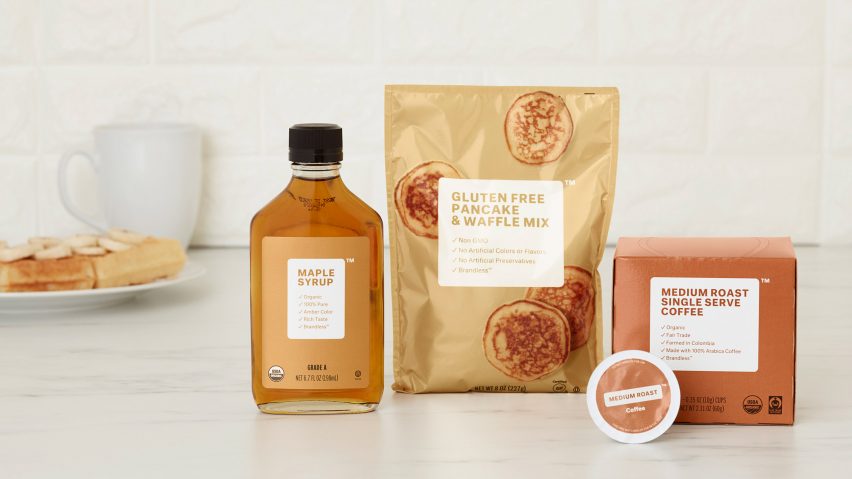New company Brandless has taken minimalist packaging to the extreme by trademarking a white box for its range of food and home items, which each cost $3.
Launched last week, Brandless aims to democratise the grocery industry by stripping away brand labels and treating products equally.
To do this, the company submitted a trademark for a white box, which forms the base for the ultra-simple graphics rolled out across its range, co-designed with Brooklyn agency Red Antler.
Each product comes in a different single-colour package, with the white box containing its name and key facts or ingredients in text in the same hue. The Brandless logo – which doesn't feature prominently on any of the products – is also contained within a white box.
By removing identity, the company said it is saving on the hidden costs incurred when purchasing from a national brand – known as BrandTax – and can therefore bring down the price of the goods.
As well as simplified design, every item from a stainless steel knife to a jar of coconut oil costs $3 (£2.30) and can only be purchased online, with additional costs for shipping. Delivery is currently only available in the USA.
The San Francisco-based company was founded by Silicon Valley entrepreneurs Tina Sharkey and Ido Leffler, who spent two years turning their idea into reality.
"With Brandless, we wanted to invent something completely fresh and new," said the duo.
"Something that puts purpose into every product and message shared, and models a new kind of relationship between people and the companies built to serve them – directly, with integrity, transparency, authenticity, and democratised access," they added.
Brandless launched with an offering of 200 products, chosen for their day-to-day usefulness.
The homeware, beauty products and non-perishable food items were developed and rigorously tested to make sure they were competitive against industry standards. The majority of materials and ingredients are sourced from the US.
The current trend for minimalist graphics and packaging is picking up pace, with everything from credit cards to beer cans receiving a stripped-back treatment.

